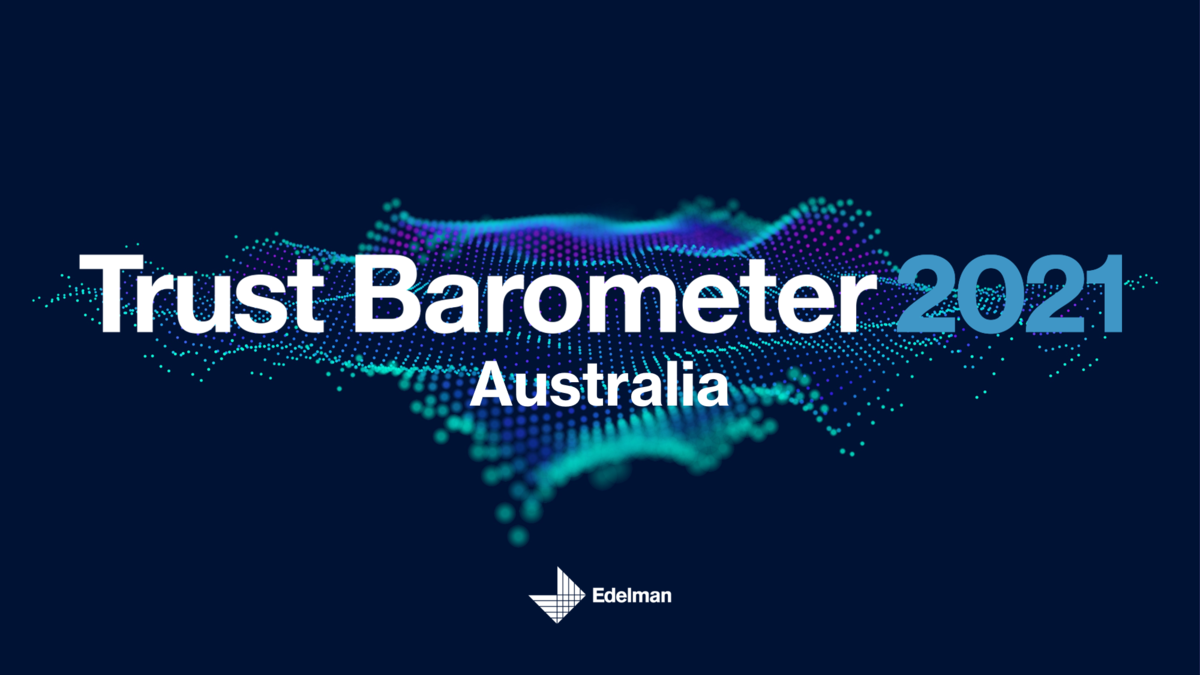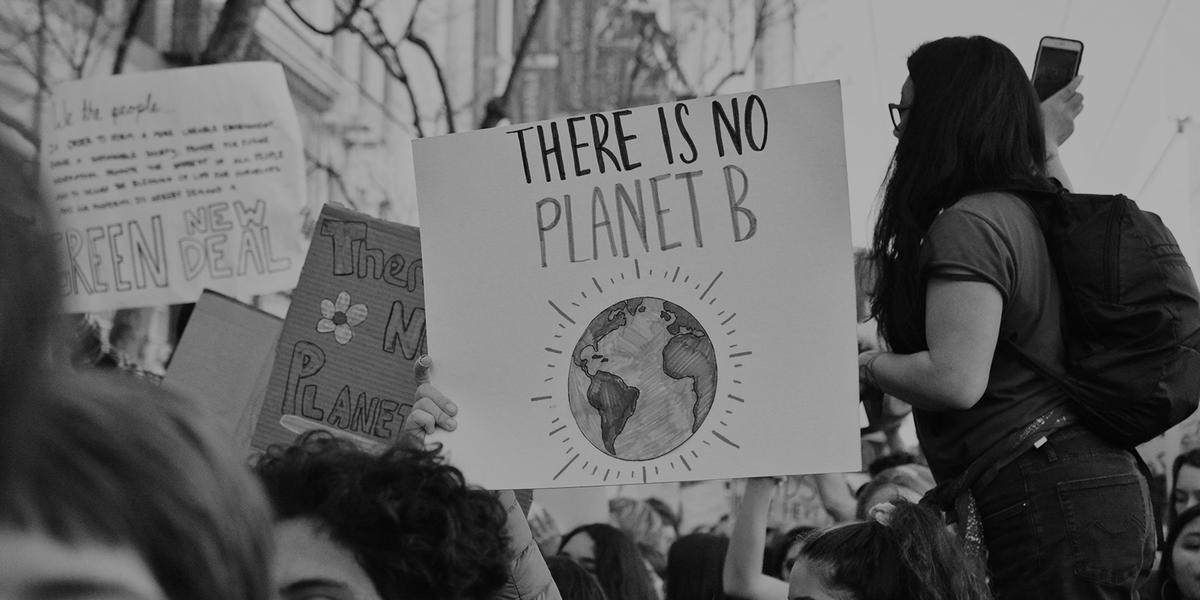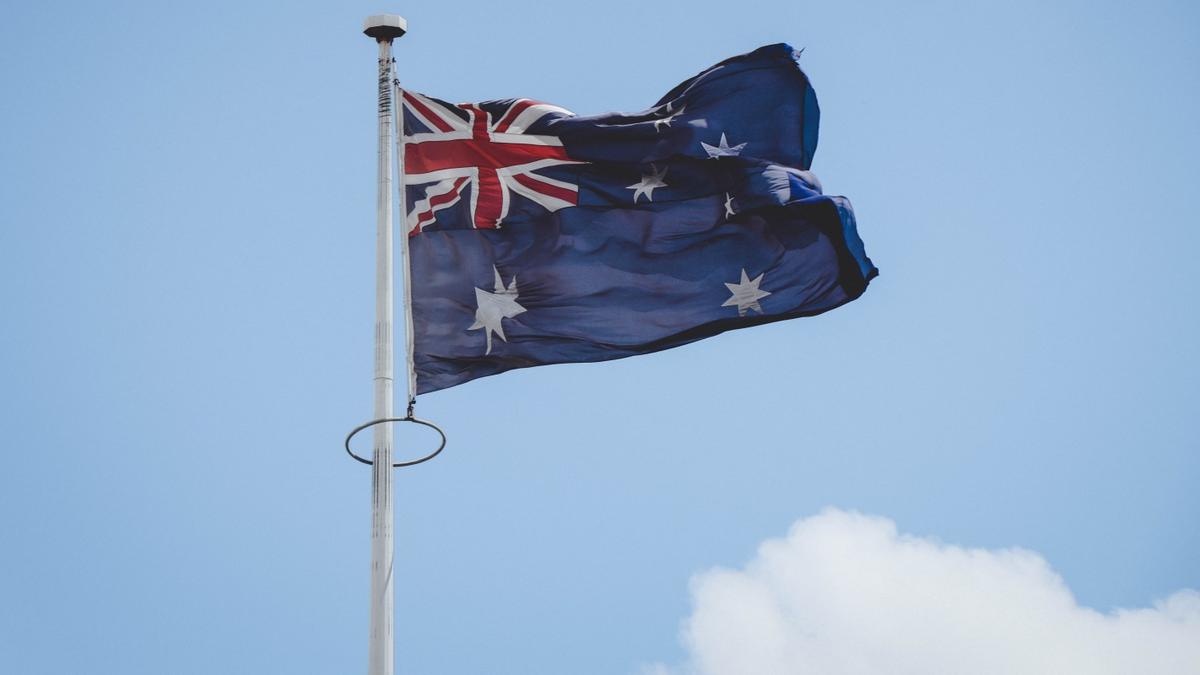The 2022 Edelman Trust Barometer reveals sharp declines in trust across all Australian institutions, eroding the record-high levels of public trust recorded in 2021. Only 52% of Australians say they trust government to do the right thing (-9 points year-on-year) and 58% trusting each business (-5 points) and NGOs (-4 points). Media, which saw a notable surge in trust in 2021, fell by 8 points to 43%, making it the only institution in Australia distrusted by a majority of the population.
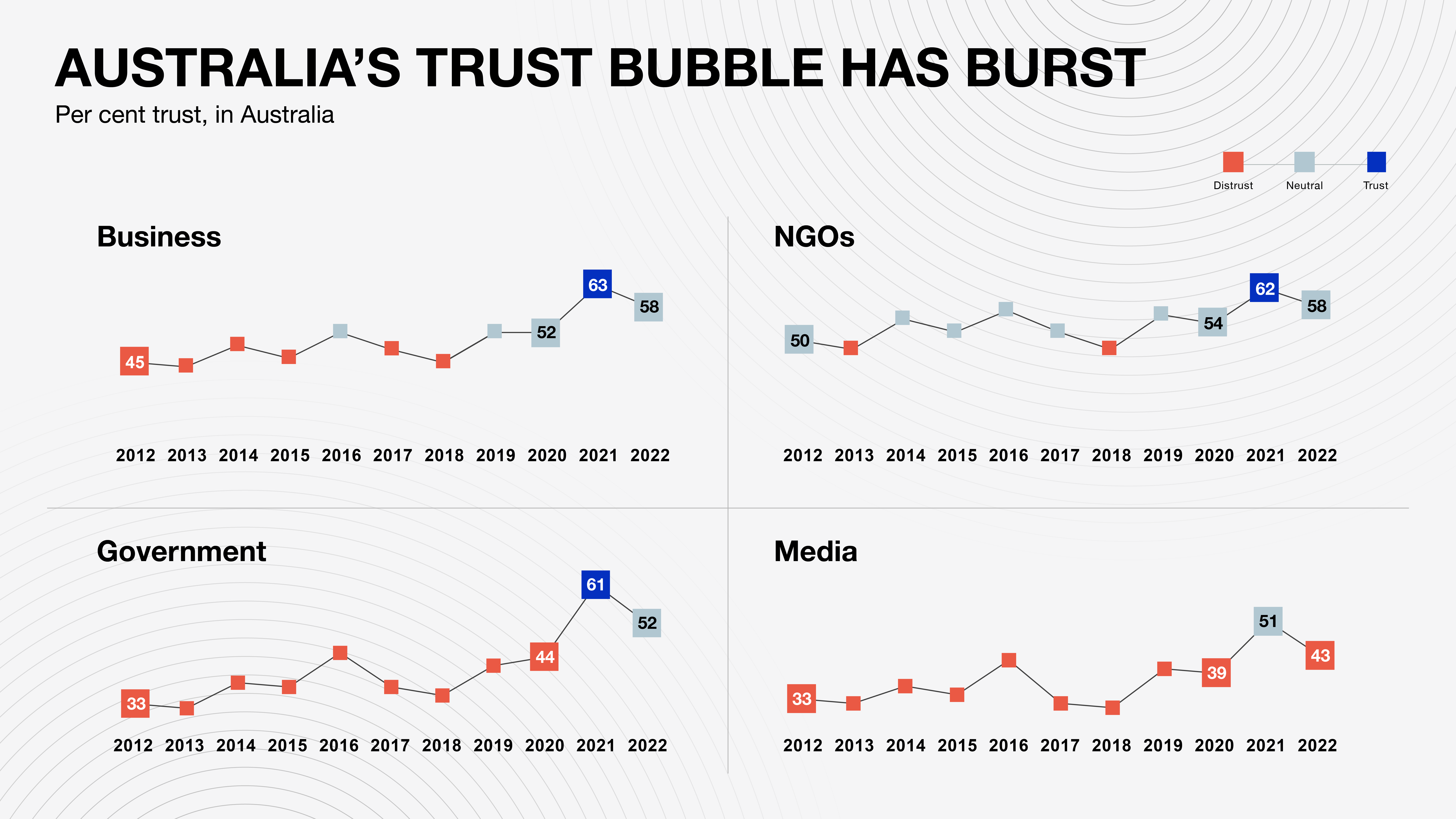
The national decline in trust has also been felt across industry sectors, with the exception of technology (+2 points), food and beverage (+1 point) and education (+1 point). Social media (-6 points), telecommunications (-5 points), manufacturing (-5 points), fashion (-4 points) and retail (-3 points) recorded the largest declines of trust.
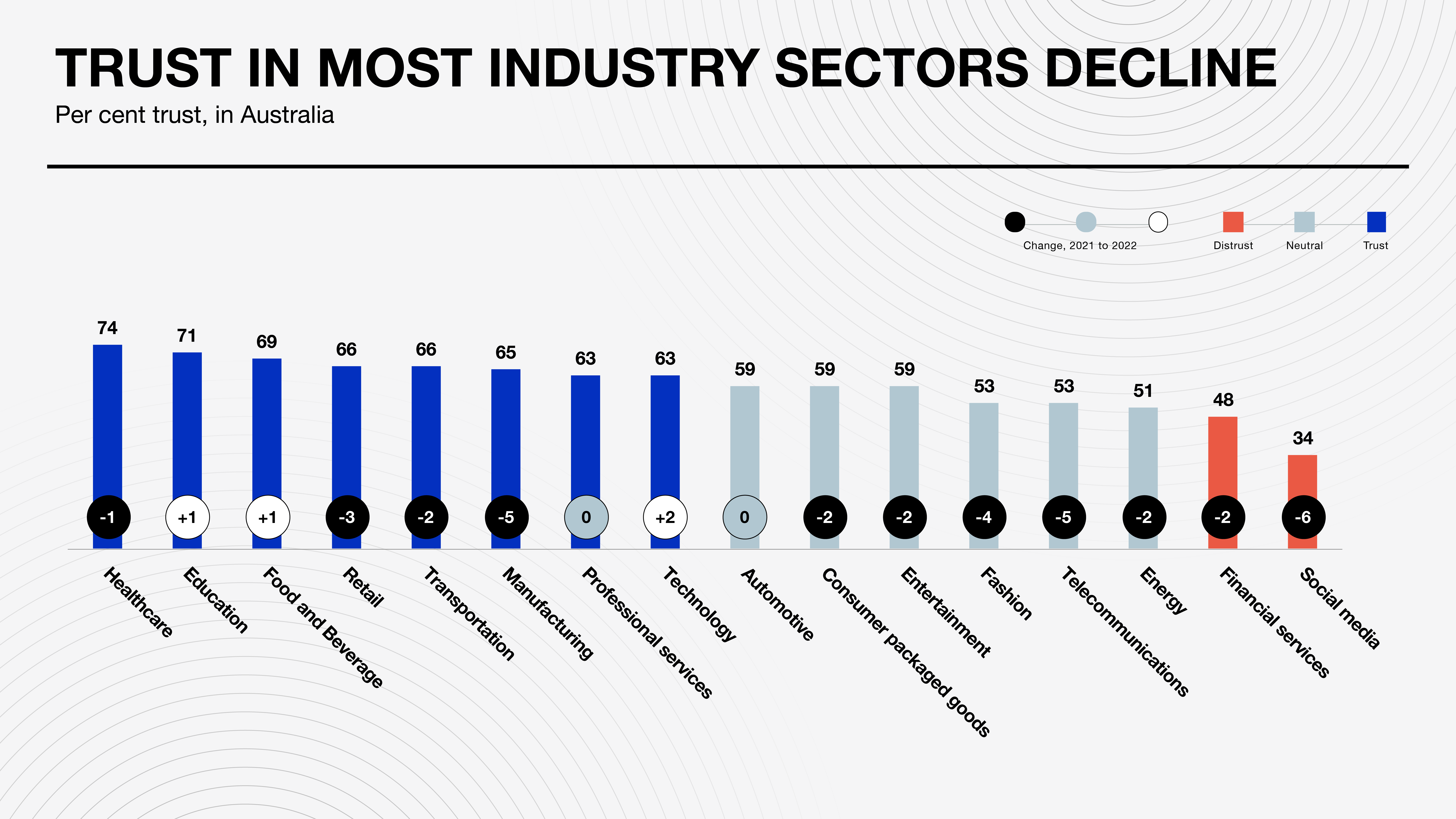
The data reveals a stark contrast between the four institutions, with Australians seeing government and media as more divisive than unifying for society, whereas business and NGOs are more likely to be seen as unifying than divisive. When asked whether each institution serves to divide or unify society, more than half of Australians see media (55%) and government (52%) as divisive. Conversely, more Australians see business and NGOs more unifying than those who consider these institutions playing a dividing role.
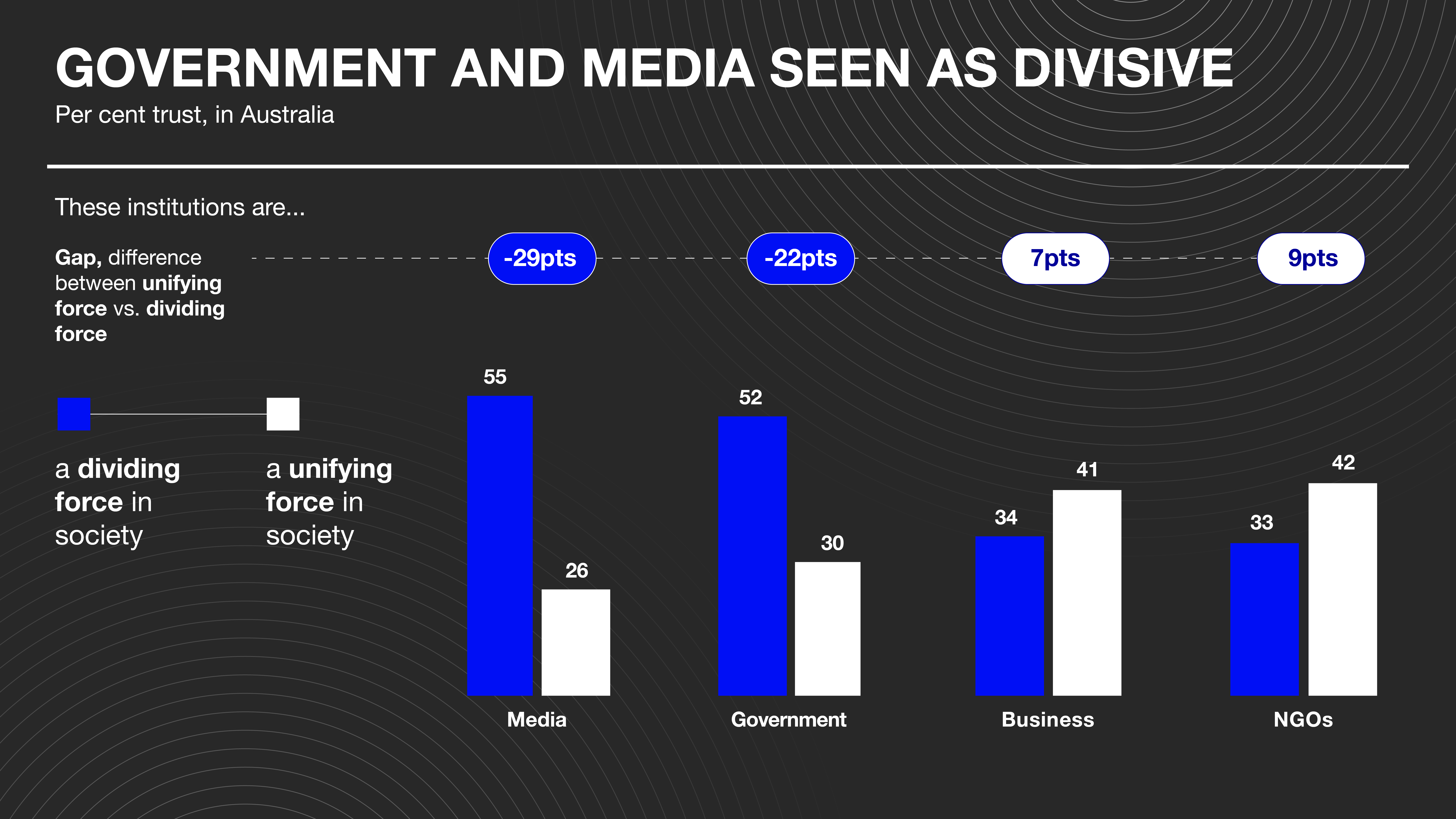
Australia trapped in a cycle of distrust
This year’s data uncovers a failure of societal leadership that has made distrust the default among Australians. Mirroring declining trust in media, is an erosion of trust in society’s traditional leaders, with only 43% of Australians trusting both government leaders and CEOs, falling 9 and 5 points year-on-year, respectively. Moreover, a majority of Australians believe that journalists (65%), government leaders (61%) and business leaders (61%) are actively trying to mislead them by saying things they know are false or grossly exaggerated.
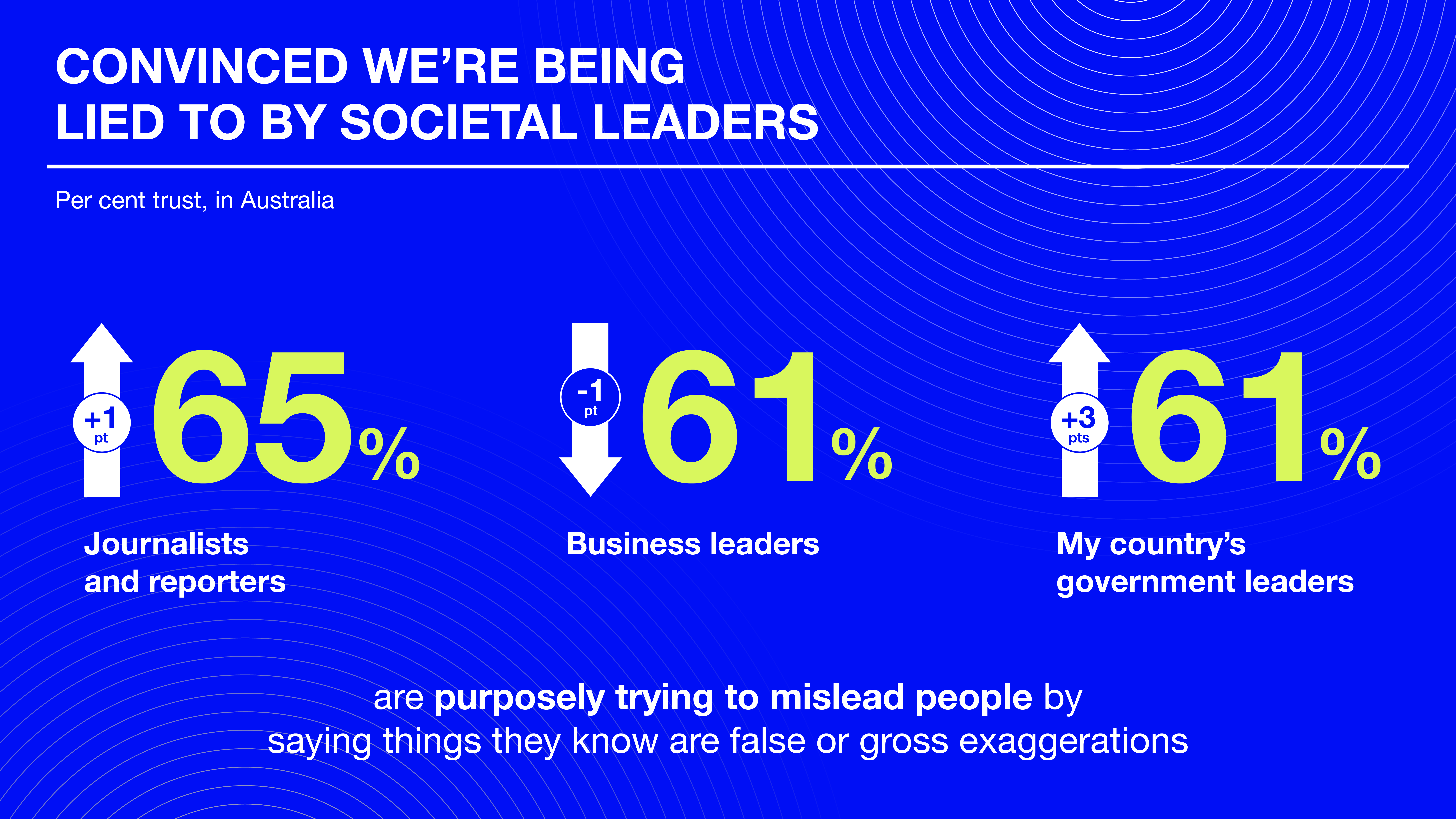
Trust in all media sources has fallen, with traditional media only trusted by 48% of Australians (-5 points), search engines by 47% (-4 points), owned media by 33% (-5 points) and social media by only 24% of Australians (-8 points). Not surprisingly, Australians’ concerns about disinformation and fake news remain high with 73% worried about false information or fake news being used as a weapon.
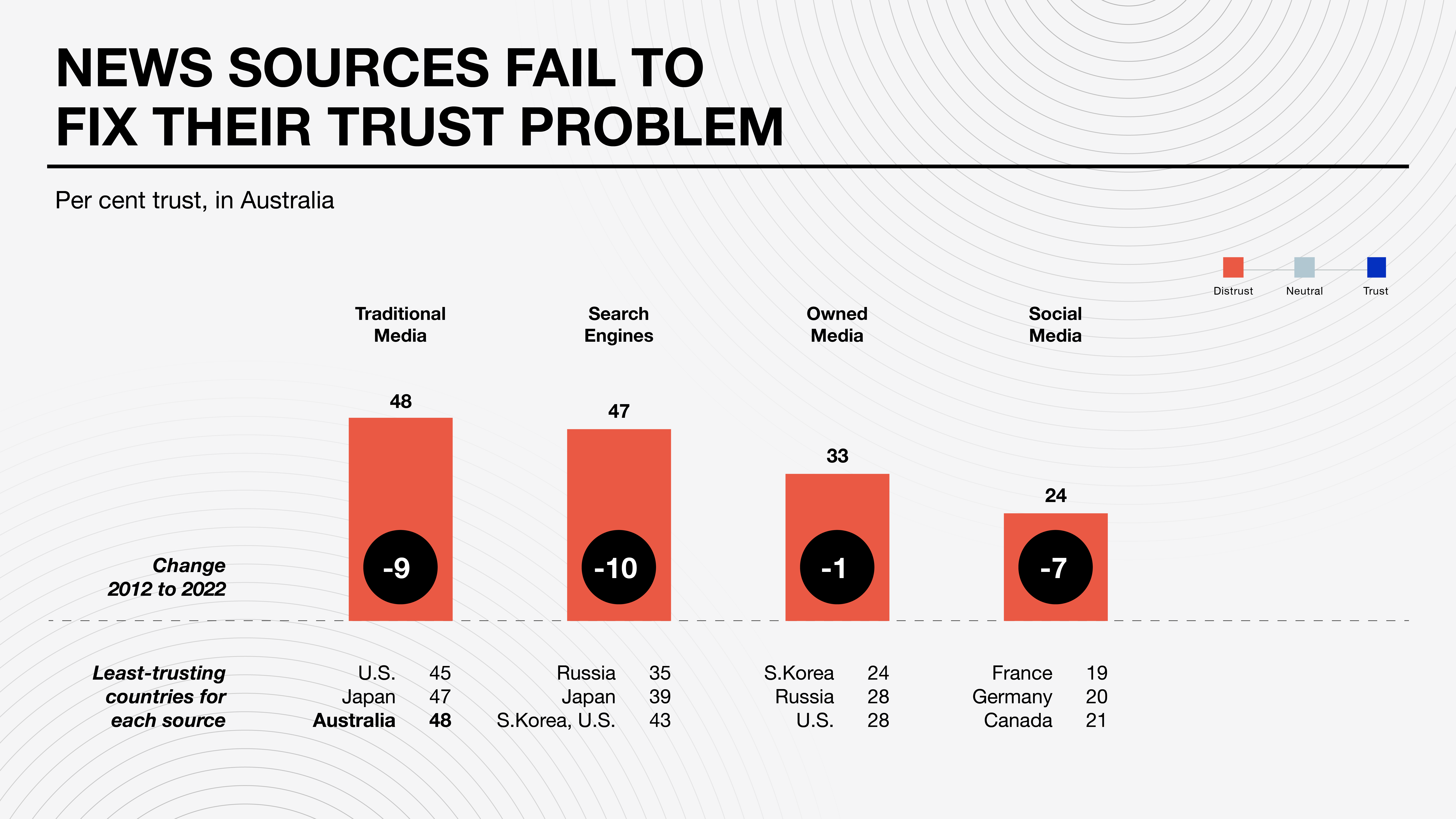
A majority of Australians (55%) say their default tendency is to distrust something until they see evidence it is trustworthy. Another 61% say it has gotten to a point where Australians are incapable of having constructive and civil debates about issues they disagree on – a foundational trait of a functioning and productive society, especially in democratic nations.
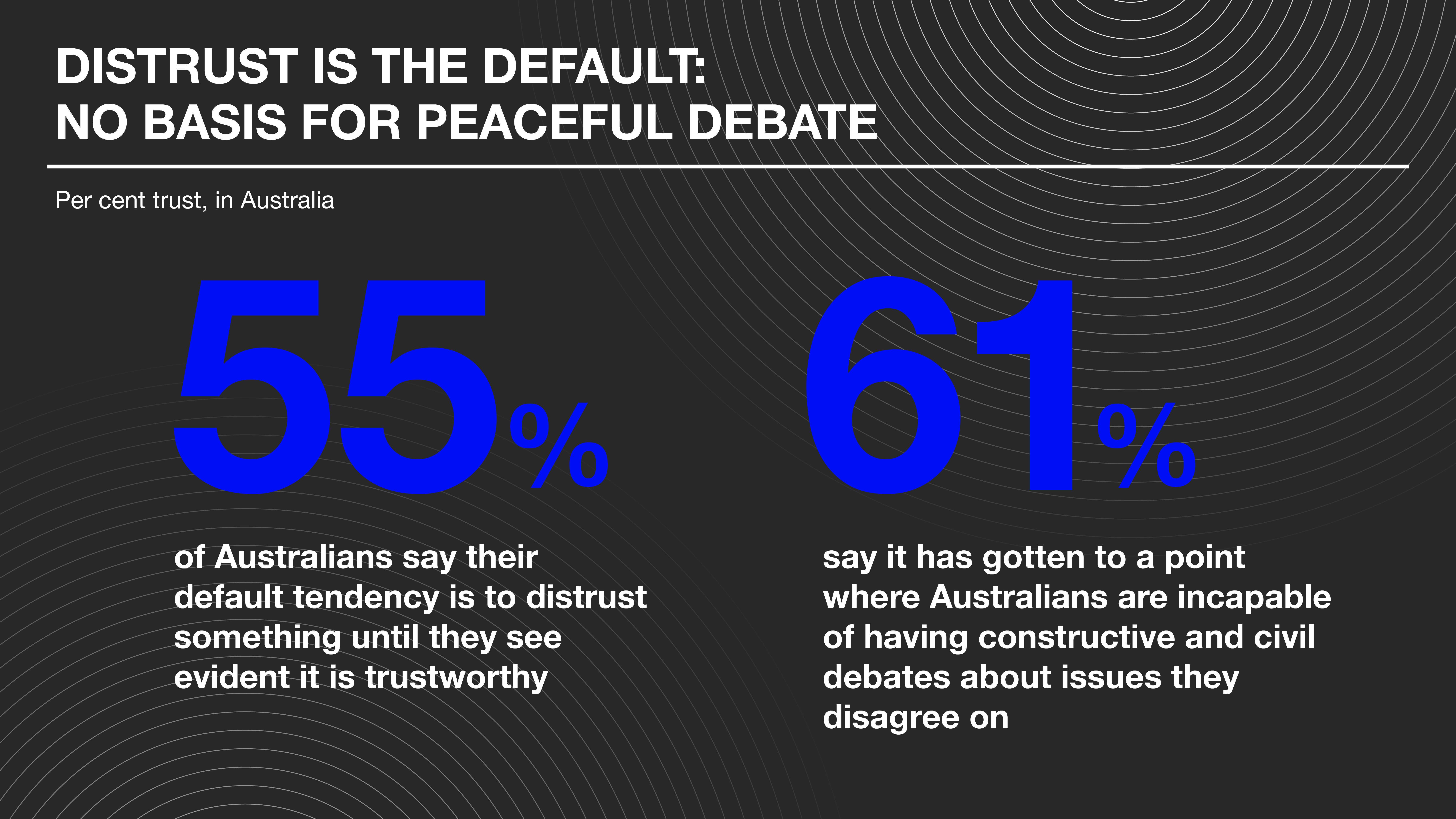
Societal leadership becomes operational imperative
All stakeholders now hold business accountable for taking a stand on issues that align with their values and beliefs. Fifty-six per cent of Australian consumers will buy or advocate for brands based on their belief and values; 57% of Australian employees will choose a place to work based on their beliefs and values, and 64% of investors make financial decisions based on their beliefs and values.
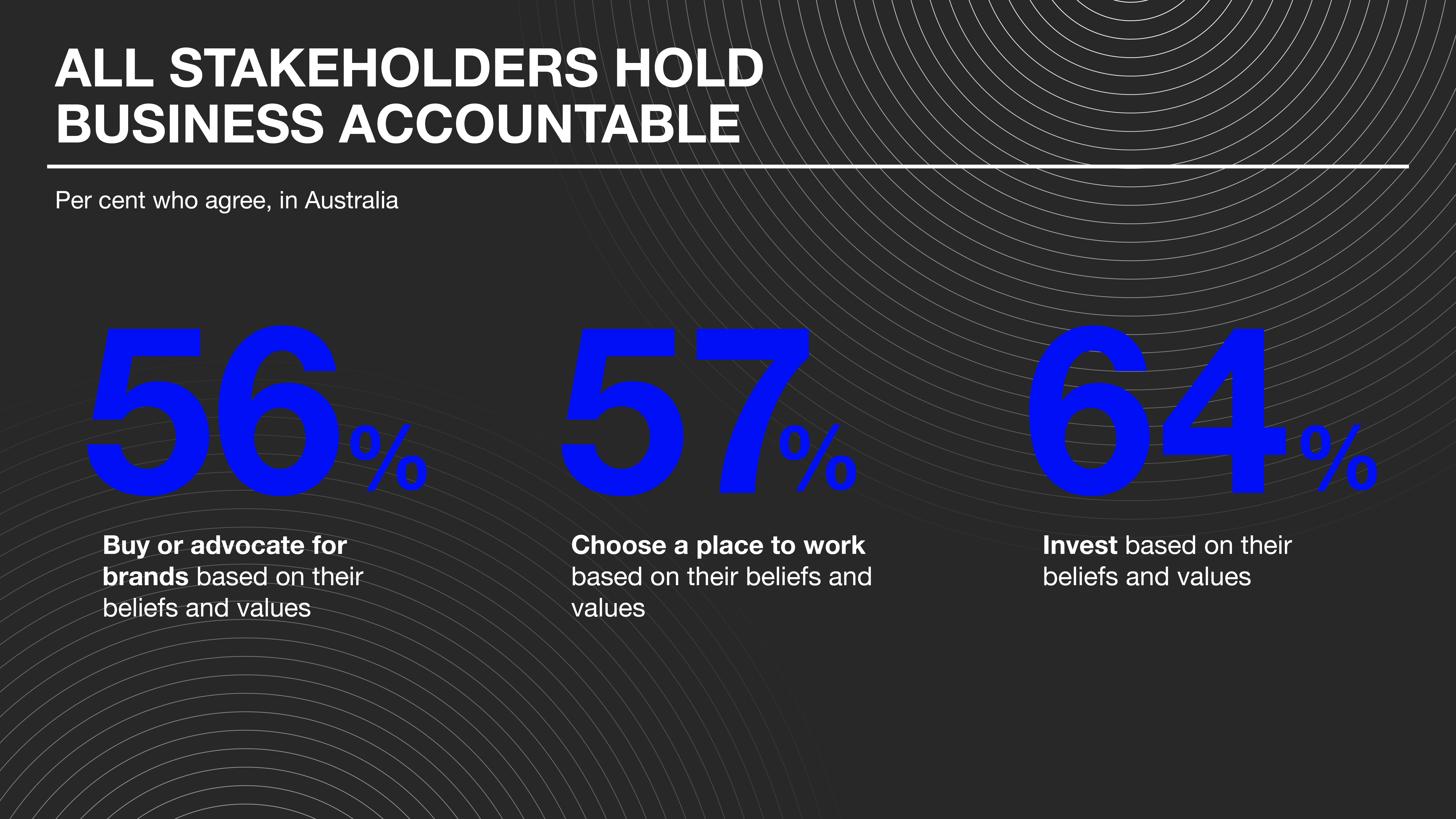
The expectation for business to take a stand on social issues is putting greater pressure on CEOs to personally lead on change and be visible. Eight in ten believe CEOs should be visible discussing policy with external stakeholders or work their company has done to benefit society. Australians also expect CEOs to inform and shape conversations around subjects specifically related to jobs and the economy (72%), wage inequality (72%), technology and automation (68%), prejudice and discrimination (64%) and climate change (61%). However, CEOs are expected to stay out of politics.
Business poised to break cycle of distrust: information quality most powerful trust builder
Business is now the only institution that is perceived as both competent and ethical – bestowing upon it a clear mandate for driving social change. Australians want business to be doing more, not less, when engaging on all societal issues. Forty-four per cent of Australians say business should be doing more when it comes to climate change, compared to 10% who think business is overstepping when it comes to the environment.
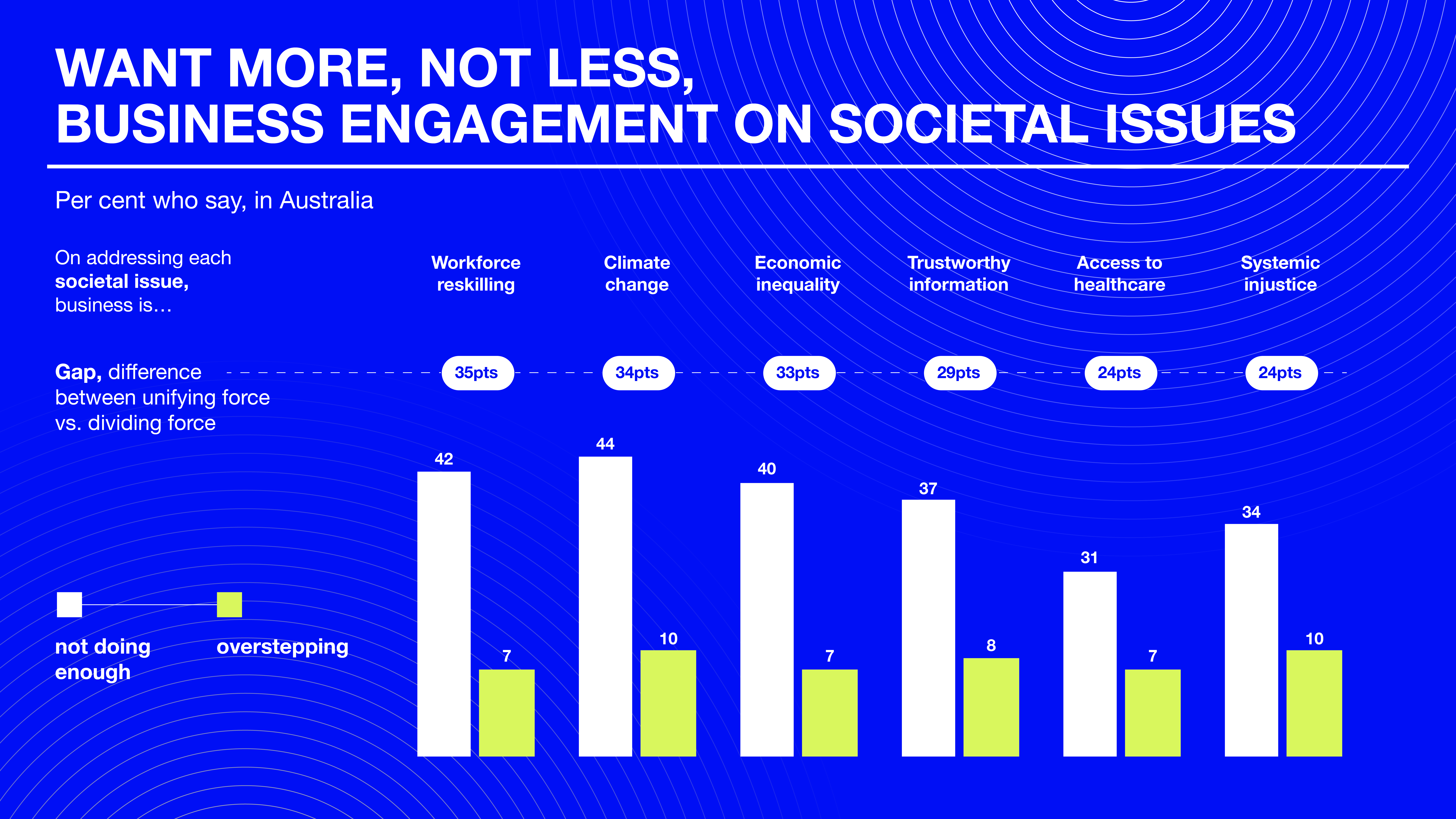
Employers continue to enjoy strong levels of trust with their employees, with nearly three quarters of Australian employees (74%) saying they their employer, compared to 58% who trust business in general. Employers’ communications are also highly trusted (70%), eclipsing communications from government (63%), media reports with named sources (58%) and advertising (51%).
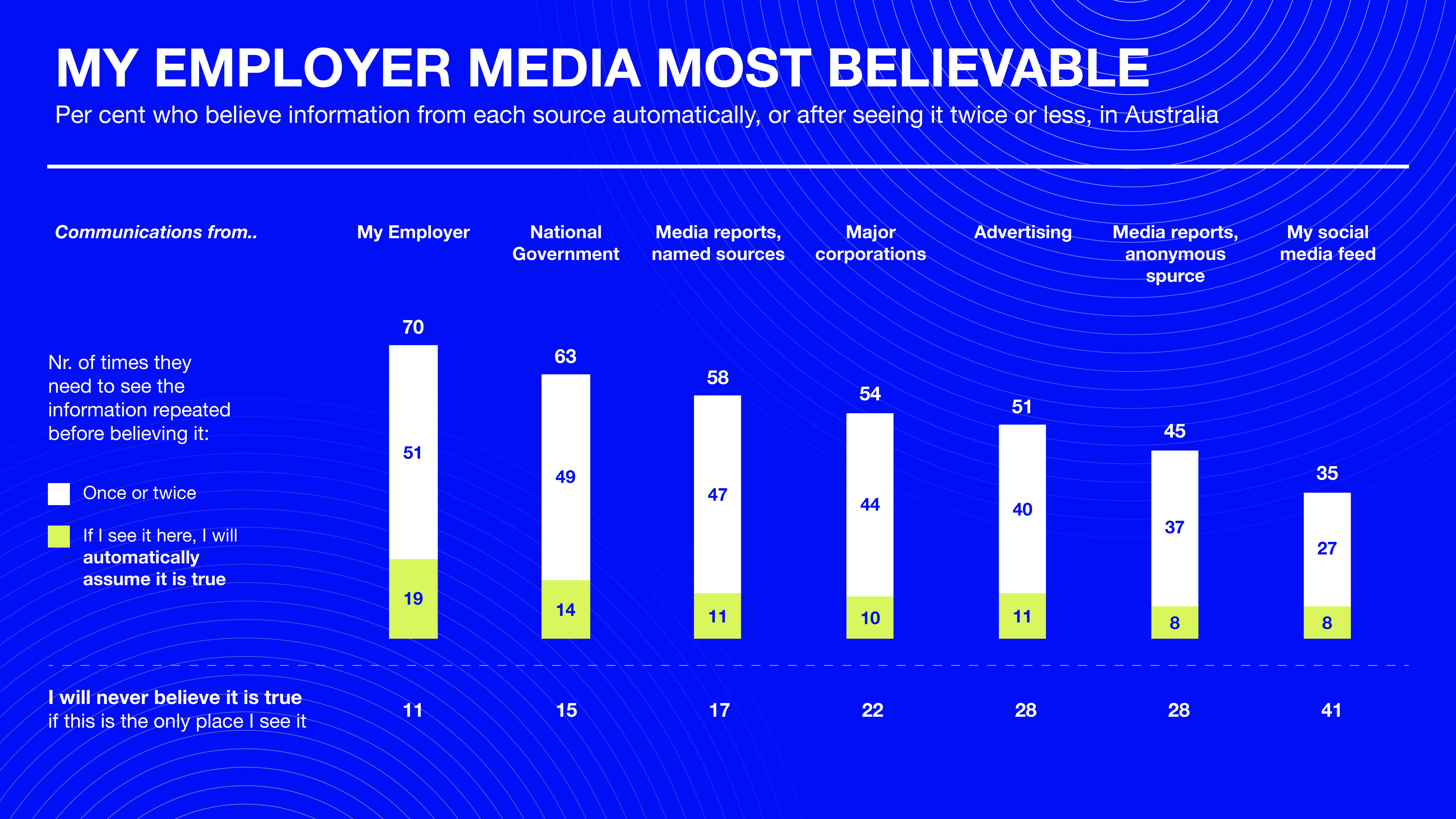
The importance of quality and reliable trustworthy information cannot be overstated. Providing ‘quality information’ was found to be the number one most powerful trust builder. This not true just for business (3%) and NGOs (3.2%), but even more so for government (6.1%) and media (6.6%).



